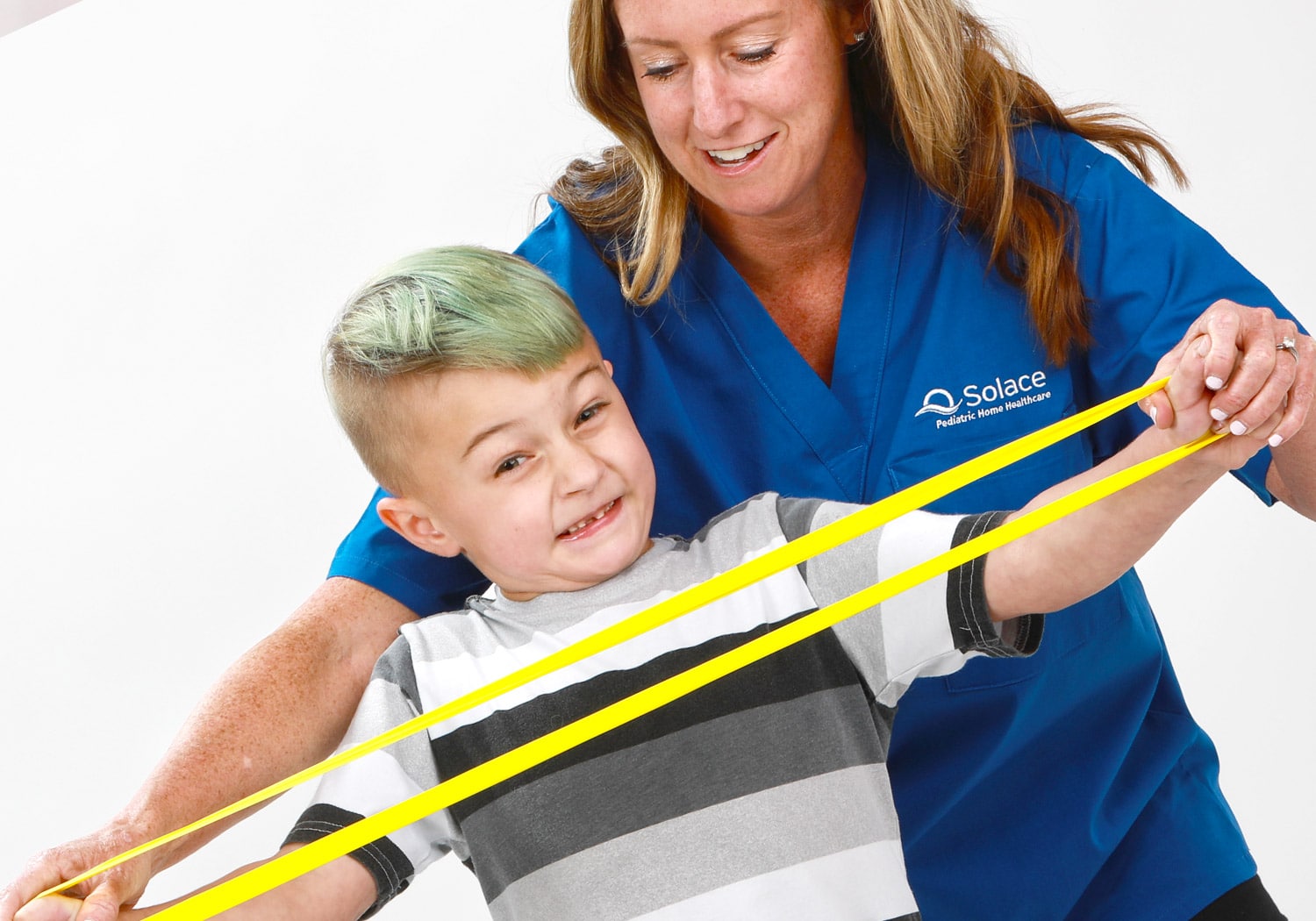Solace Blog
- Activities19
- Autism & Behavioral4
- Community154
- Early Intervention71
- Events & Giving Back20
- Extraordinary Kids22
- Family Caregiver4
- Home Care Therapy60
- News94
- Parent Articles83
- Patient Testimonial21
- Pediatric Therapy77
- Pediatric Therapy Career46
- Private Duty Nursing1
- School-Based Services1
- Telehealth Therapy27
- Tips & Advice66
Summer Reading List: Books to Inspire Therapist Growth
Cooling Off with Aquatic Therapy: Benefits and Best Practices
Sensory Activities For Kids

From School To Home: Christian’s Shift To Impactful Therapy
Speak, Listen, Connect: 6 Communication Strategies for Therapists

Working with Children with Developmental Disabilities: A Guide for Pediatric Physical Therapists
As a pediatric physical therapist, working with children with developmental disabilities can be both challenging and rewarding. It requires specialized skills and a deep understanding of the unique needs of each child. At Solace Pediatric Healthcare, we are committed to supporting our physical therapists in their work with children with developmental disabilities. In this article, we will provide a guide for pediatric physical therapists working with these special patients.
- Understanding the Diagnosis: The first step in working with children with developmental disabilities is to understand the diagnosis. This includes understanding the specific developmental delays or disabilities the child is facing, as well as any other medical or psychological conditions that may be impacting their development.
- Setting Realistic Goals: Once you have a clear understanding of the child’s diagnosis, it’s important to set realistic goals for therapy. This includes working with the child’s family and other healthcare professionals to determine the best course of treatment and setting achievable goals.
- Customizing Therapy: Each child with a developmental disability is unique, and their therapy should be tailored to their individual needs. This may include incorporating sensory integration therapy, adaptive equipment, or other specialized techniques to help the child reach their full potential.
- Collaboration with Other Healthcare Professionals: Working with children with developmental disabilities requires collaboration with other healthcare professionals, including pediatricians, occupational therapists, and speech language pathologists. It’s important to work together to develop a comprehensive treatment plan that addresses all aspects of the child’s development.
- Building a Strong Relationship with the Child and their Family: Finally, building a strong relationship with the child and their family is critical to the success of therapy. This includes developing a trusting relationship with the child, as well as providing support and education to the family throughout the therapy process.
We are Committed to Supporting Our Pediatric Physical Therapists
Here at Solace, we are committed to supporting our pediatric physical therapists in their work with children with developmental disabilities. We provide ongoing training and professional development opportunities, as well as a supportive and collaborative work environment.
Working with children with developmental disabilities requires specialized skills and a deep understanding of each child’s unique needs. By understanding the diagnosis, setting realistic goals, customizing therapy, collaborating with other healthcare professionals, and building strong relationships with the child and their family, pediatric physical therapists can make a positive impact on the lives of their patients. We are proud to support our physical therapists in their work with these special children and to help them succeed in their careers.
Share this Post